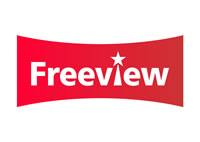 What’s the difference between a Wikia and a Wikipedia? Trivia, mostly – but also, Gil Penchina (pictured below). Penchina has spent eight years running eBay as a general manager and told me it was “like a whole career with any ordinary company, and I want to stop.”
What’s the difference between a Wikia and a Wikipedia? Trivia, mostly – but also, Gil Penchina (pictured below). Penchina has spent eight years running eBay as a general manager and told me it was “like a whole career with any ordinary company, and I want to stop.”
So Gil has started his own gang. He’s the new CEO of Wikia, which is (at first sight, anyway) exactly like Wikipedia, right down to being founded by the same guy – Jimmy Wales – but it’s designed to relieve the pressure on the main site to cover trivia like soap TV shows.
The company announced itself in a Wiki entry on its own site saying: “Wikia enables groups to share information, news, stories, media and opinions that fall outside the scope of an encyclopedia.”
But it’s not all Star Trek, as you might deduce from that. Try “Archaeology” for example: “The archaeology Wikia is for any archaeology related content, and for the archaeological community to share ideas on this topic.” Why isn’t that on Wikipedia? or “Astronomy”? – “The astronomy Wikia is for all astronomy topics.”
 But a little roaming around exposes the difference: it’s a “community thing.” According to the Astronomy Wikia, “The wiki was started with a focus specifically on topics related to the Mid Atlantic Star Party and will include reports from MASP attendees.”
But a little roaming around exposes the difference: it’s a “community thing.” According to the Astronomy Wikia, “The wiki was started with a focus specifically on topics related to the Mid Atlantic Star Party and will include reports from MASP attendees.”
Is there a real need for this? Gil thinks yes, definitely – but the way he talks, it’s not altogether clear who exactly is needing it. For example, try the “Buffyverse” Wikia which was founded on 15 October last year.
That’s got to be a goodie, right? Buffy the Vampire Slayer and the spinoff, Angel, are two of the most cult-like of cult-media TV shows. It’s not only got meaningless violence by cute, tight-busted teens, but also supernatural demons and Powers That Be – and any true Buffy fan will also assure you, a line in wry comedy that rivals anything the best of British TV comedy could offer.
And despite all that, there’s nothing there. Hit the button “article” for and all you get is: “You have followed a link to a page that does not exist yet. If you are here by mistake, just click your browser’s back button.” And off you go, kid; you’re effectively going to found the Buffy Wikia.
 Why would you do that? In Gil’s view of the future, of course, it would be to prevent the more serious Wikipedia from being cluttered with Buffy trivia. Too late, surely? – but even if it isn’t, is “good for Wikipedia” the same as “good for Wikia?”
Why would you do that? In Gil’s view of the future, of course, it would be to prevent the more serious Wikipedia from being cluttered with Buffy trivia. Too late, surely? – but even if it isn’t, is “good for Wikipedia” the same as “good for Wikia?”
Out in the real world, of course, people run fan sites without feeling any need to use a Wikipedia entry. If they think a Wiki is a good way to do a fan site, the software for running a Wiki is available – many are free. All you need is a nice URL like (say) BuffyGuide or BuffyWorld and in that case, the “community” can create advertising and subscription and screensaver revenue – and you get to keep the money, not give it all to Gill and Jimmy.
Gil accepts that the financial success of Wikia isn’t yet assured. He’s not pouring cash into it. It’s not flooded with expensive staff; it’s going to grow as it grows, he says.
On the other hand, lots of people have made lots of money out of supporting groups and communities. And a lot of people have been pouring scorn on the trivial content of the Wikipedia – and saying “it’s not a Real Encyclopaedia, is it?” in mocking tones – a criticism that deeply offends Jimmy Wales.
If the Wikia concept does catch on, it looks like it may be slow. As one disappointed visitor to the “Doom” Wikia complained: “wow, I just came to the main page of this wiki and got excited to read about Doom, it’s got coverage of the games, the mods, everything I’d want to know. Then I got to the end of the paragraph on the main page, and had no idea how to access any of this cool content. how about a link or two on the main page to get people started? a table of contents or something perhaps? there’s just nothing there.”
Doom isn’t the only empty cupboard. There are some obviously promising Wikias, but far more that are not yet.
Gil just nodded and smiled. “I’m not looking for instant frenzy,” he conceded. “I was really thinking of retiring, but Jimmy said this needed doing, and it may suit me after the stress of eBay for the last eight years…”
 There’s mutterings of some discontent around MySpace, the insanely popular social site.
There’s mutterings of some discontent around MySpace, the insanely popular social site. The original Bragg posting was made back in mid-may, but was highlighted when it was picked up by the
The original Bragg posting was made back in mid-may, but was highlighted when it was picked up by the  We wouldn’t normally bore you with tales of how many more percent of the UK population have joined the Digital TV-owning army, but this one is a significant one.
We wouldn’t normally bore you with tales of how many more percent of the UK population have joined the Digital TV-owning army, but this one is a significant one. TV over ADSL First
TV over ADSL First Additional TV Sets – Ongoing problems
Additional TV Sets – Ongoing problems Sad but (supposedly) true: a new study by Nokia has found that over one in five mobile owners said they’d find losing their phone more upsetting than their wallet, credit cards and – unbelievably – even their wedding ring.
Sad but (supposedly) true: a new study by Nokia has found that over one in five mobile owners said they’d find losing their phone more upsetting than their wallet, credit cards and – unbelievably – even their wedding ring. Nokia commissioned the research in 11 countries around the globe to discover people’s attitudes towards current and future mobiles, and generally found that people *heart* the things the planet over.
Nokia commissioned the research in 11 countries around the globe to discover people’s attitudes towards current and future mobiles, and generally found that people *heart* the things the planet over. Surfing on the move
Surfing on the move New research from messaging security specialists Proofpoint has revealed that more than a third of blue-chip companies in both the US and UK hire dedicated staff to snoop on their employee’s emails.
New research from messaging security specialists Proofpoint has revealed that more than a third of blue-chip companies in both the US and UK hire dedicated staff to snoop on their employee’s emails. With companies becoming more concerned about internal security breaches rather than external threats, 34 per cent of companies claimed that their business was impacted by the exposure of sensitive or embarrassing information over the last year.
With companies becoming more concerned about internal security breaches rather than external threats, 34 per cent of companies claimed that their business was impacted by the exposure of sensitive or embarrassing information over the last year. If you’re still running Ye Olde versions of Microsoft Windows XP Service Pack 1 (SP1) and Service Pack 1a (SP1a), you’d better get your modem in gear as Microsoft will be ending support for these products on 10 October, 2006.
If you’re still running Ye Olde versions of Microsoft Windows XP Service Pack 1 (SP1) and Service Pack 1a (SP1a), you’d better get your modem in gear as Microsoft will be ending support for these products on 10 October, 2006. This added USB 2.0 support and a Set Program Access and Defaults utility, letting users control the default application for activities such as web browsing and instant messaging.
This added USB 2.0 support and a Set Program Access and Defaults utility, letting users control the default application for activities such as web browsing and instant messaging. Google is ready to shove its size nines deep into Microsoft territory with the launch of a free Web-based spreadsheet program, Google Spreadsheets.
Google is ready to shove its size nines deep into Microsoft territory with the launch of a free Web-based spreadsheet program, Google Spreadsheets. He explained that the program’s main goal is to make it easier for family, friends or co-workers to read and work on the same spreadsheet from different computers at different times, letting authorised users add and edit data without having to keep sending e-mail attachments back and forth.
He explained that the program’s main goal is to make it easier for family, friends or co-workers to read and work on the same spreadsheet from different computers at different times, letting authorised users add and edit data without having to keep sending e-mail attachments back and forth. Purveyor of fluffy, family-friendly feature films, Walt Disney has become the latest Hollywood studio to offer movies for sale on the Internet, with a new service offering films via the CinemaNow online service.
Purveyor of fluffy, family-friendly feature films, Walt Disney has become the latest Hollywood studio to offer movies for sale on the Internet, with a new service offering films via the CinemaNow online service. Instead, the movies can only be copied to a total of three other devices (including laptop PCs and handheld electronic devices) supporting CinemaNow’s copyright-protection technology.
Instead, the movies can only be copied to a total of three other devices (including laptop PCs and handheld electronic devices) supporting CinemaNow’s copyright-protection technology. “We take that as a real nice vote of confidence,” he added, before trotting off to the litter tray.
“We take that as a real nice vote of confidence,” he added, before trotting off to the litter tray. Some details of Sony’s eagerly-awaited debut into the dSLR market have begun to emerge online.
Some details of Sony’s eagerly-awaited debut into the dSLR market have begun to emerge online. This feature – inherited from Minolta -begins autofocus and auto-exposure as soon as it detects your peeper gazing through the viewfinder. Neat
This feature – inherited from Minolta -begins autofocus and auto-exposure as soon as it detects your peeper gazing through the viewfinder. Neat The onboard high-speed autofocus is said to sport 4 focus modes – Single-shot AF; Direct Manual Focus; AF Automatic; AF Continuous – with centre-weighted, spot and 40-segment honeycomb pattern metering modes.
The onboard high-speed autofocus is said to sport 4 focus modes – Single-shot AF; Direct Manual Focus; AF Automatic; AF Continuous – with centre-weighted, spot and 40-segment honeycomb pattern metering modes. Adobe has made available a proof-of-concept version of their new productivity tool,
Adobe has made available a proof-of-concept version of their new productivity tool,  As bloggers
As bloggers